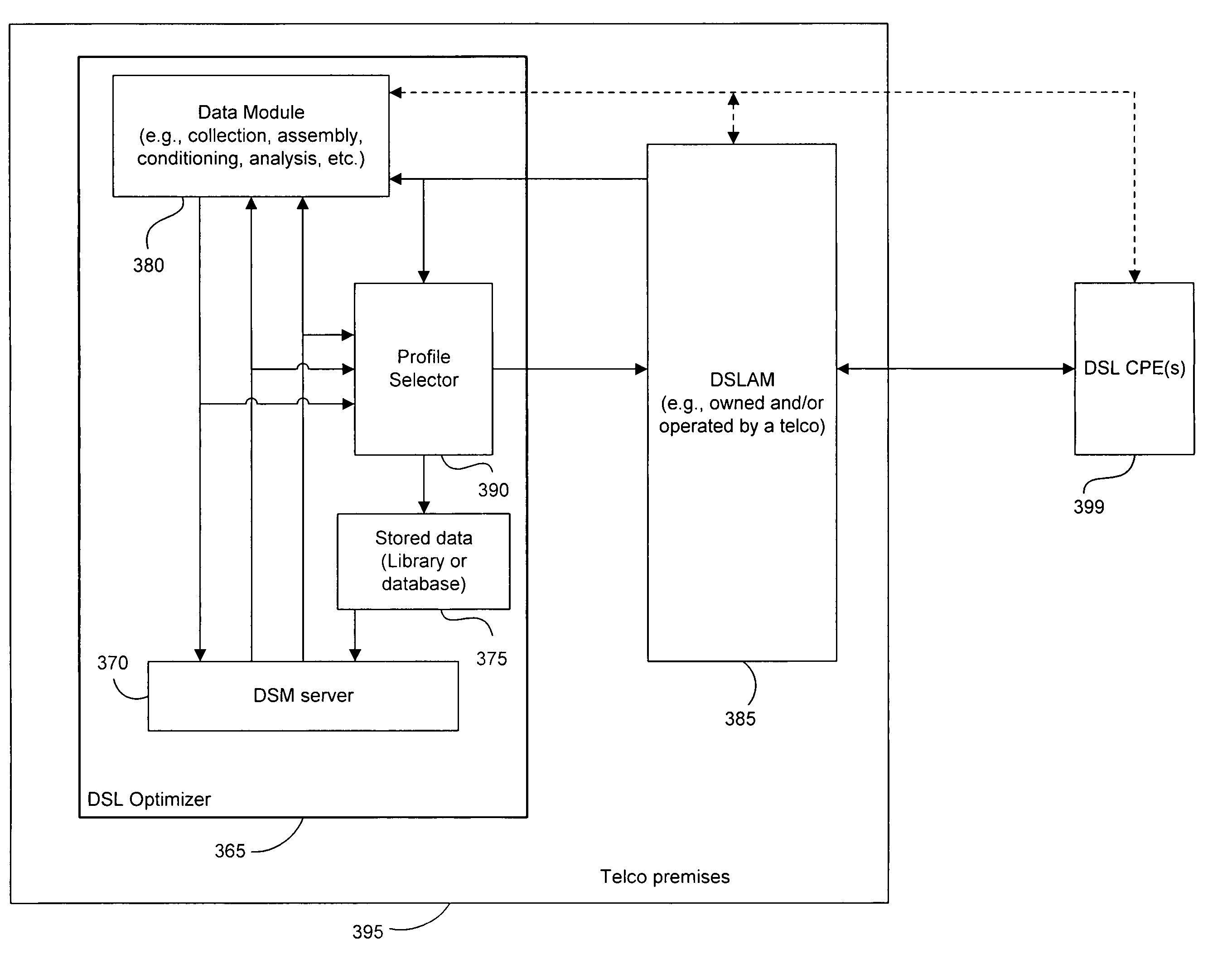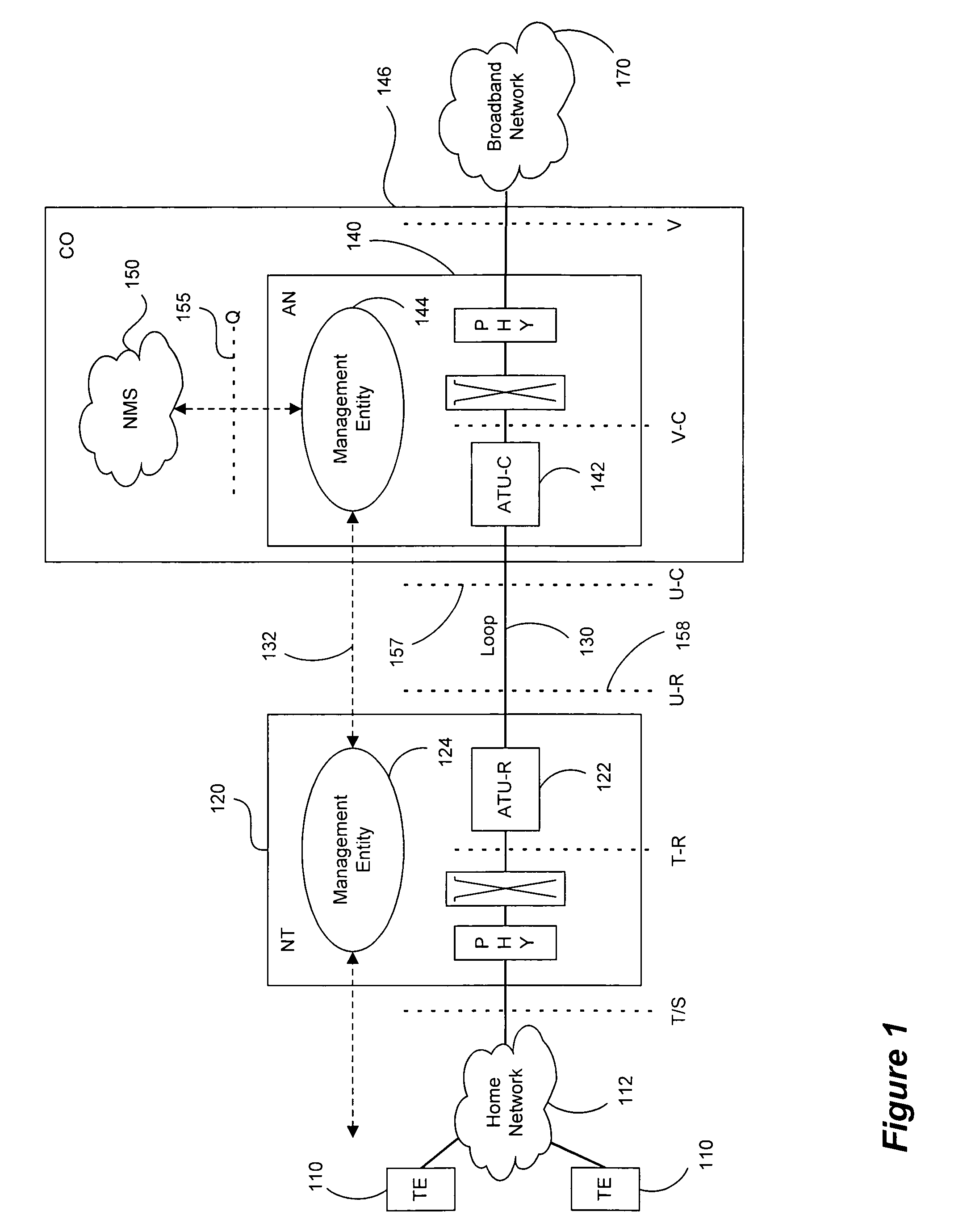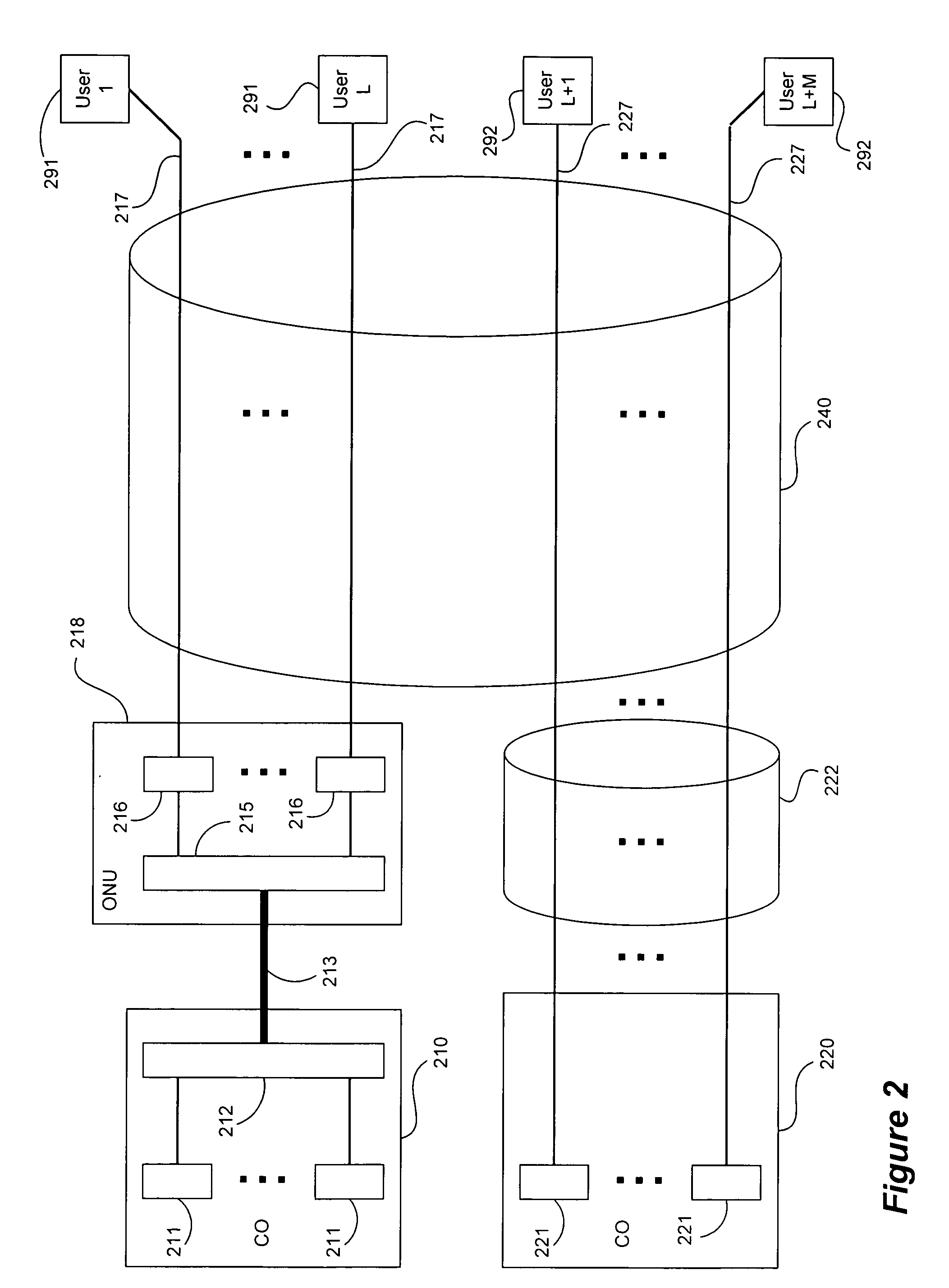DSL system estimation including known DSL line scanning and bad splice detection capability
a technology of dsl system and detection capability, applied in the direction of data switching network, line-transmission details, duplex signal operation, etc., can solve the problems of poor splice detection capability, local loops are not as suitable, local loops may not be consistent over the length of the loop, etc., to improve the accuracy of estimates
- Summary
- Abstract
- Description
- Claims
- Application Information
AI Technical Summary
Benefits of technology
Problems solved by technology
Method used
Image
Examples
Embodiment Construction
[0046] The following detailed description of the invention will refer to one or more embodiments of the invention, but is not limited to such embodiments. Rather, the detailed description is intended only to be illustrative. Those skilled in the art will readily appreciate that the detailed description given herein with respect to the Figures is provided for explanatory purposes as the invention extends beyond these limited embodiments.
[0047] Embodiments of the present invention estimate the configuration of a given xDSL system based on operational data collected from a network element management system, protocol or the like. Using an estimate thusly generated, a controller then controls the operational mode (or may recommend a mode), for example by setting users' data rates, transmit power levels, etc. While the exact configuration of the xDSL system may not be determinable, the approximation or estimate obtained using the present invention is nevertheless extremely valuable for v...
PUM
 Login to View More
Login to View More Abstract
Description
Claims
Application Information
 Login to View More
Login to View More - R&D
- Intellectual Property
- Life Sciences
- Materials
- Tech Scout
- Unparalleled Data Quality
- Higher Quality Content
- 60% Fewer Hallucinations
Browse by: Latest US Patents, China's latest patents, Technical Efficacy Thesaurus, Application Domain, Technology Topic, Popular Technical Reports.
© 2025 PatSnap. All rights reserved.Legal|Privacy policy|Modern Slavery Act Transparency Statement|Sitemap|About US| Contact US: help@patsnap.com



